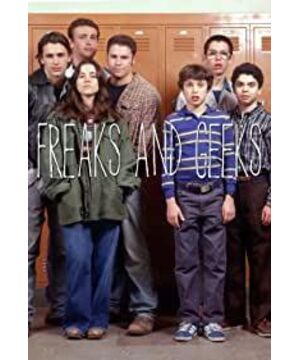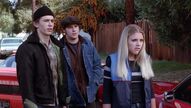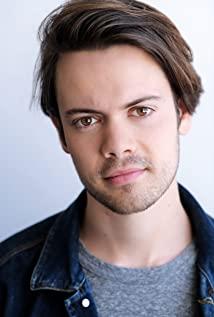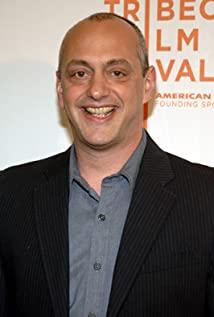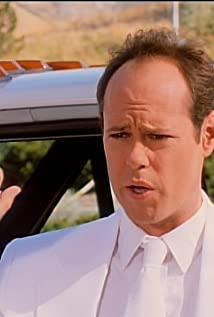Sam, Will, Neal and the long-haired glasses brother in the film belong to the geek group, and the group of Kim, Daniel, Ken, and Nick represent freak. The protagonist Lindsay rejected his original public or even the geek circle and squeezed into the ranks of Freak. The main line of the whole story is Lindsay's psychological journey of finding himself in this small society. I have always been curious about whether the high school life reflected in American TV movies is true, and what percentage is true. After asking a circle of Americans of all ages who are currently in high school and have graduated, I found that this "gang" segmentation is basically consistent with the facts.
Among the Americans I know (once) belong to various factions, but most of them are geek and freak (the so-called drop things are similar to the same-___- ). In addition to the distribution of this kind of faction, the mulatto sister of exbf also told me Race is also another basis for the division of factions in American high schools. Of course, what we see in most American TV movies is mainly white people. Firstly, because white culture is still the mainstream of society, the writers, screenwriters, and directors of TV scripts are basically white because of the level of education received. It is not difficult. Imagine that the pig's feet of these media are also white; secondly, it is estimated that the screenwriters and directors may also be able to avoid the topic of "race". To be honest, I haven't seen a TV series that touches on the status quo in high school (there are some in South Park but not very significant). In general, in a word, high schools in the United States (also in most parts of Northern Europe) are a microcosm of society, containing almost all real social contradictions and problems, which are quite different from the innocent campus life style in China. The frequent incidents of campus violence in Japan and now China are actually a general trend of the development of campus culture in the current political and economic situation, but this is a digression.
The biggest difference between Freaks and Geeks and other European and American campus dramas that we have come into contact with in recent years is reflected in the group choice it shows. Gossip Girl, High School Musical, Mean Girls, Princess Diaries, etc., most of the films choose mainstream groups in high school or even "campus celebrities" as the main characters, and freak and geek both appear as supporting roles. In contrast, F n G, which mainly describes non-mainstream groups, is unique. It may be this reason that directly caused the show to be cut when the first season was not finished.
The "life" of American TV dramas is determined by the ratings, and only the dramas that have won the largest audience can "live". F n G is defeated by the fact that the audience is too small. Who would like this kind of drama with non-mainstream people as the protagonist? As I said earlier, American high schools are the epitome of society. The general public likes to watch movies with "popular school" and "star school" students as the protagonists, because the former is familiar to most people, and the latter is what everyone (once) yearned for. Even though most geeks who have left the middle school campus will never be happy to be uncovered, the freaks may be the main crowd watching this drama, and the group of people who don't care about the mainstream media will be omitted. F n G is hard not to be hacked.
Some people might say why the similar The Big Bang Theory, which reflects geek's life, is so hot? The reason for this is related to the historical performance of Western theater, so I won't talk about it here. Simply put, the fundamental reason for The Big Bang Theory's success is that the show describes the geeks in the show in an attitude of ridicule or even cancellation. The geek characteristics of the protagonist in the play are greatly magnified. These roles are like the harlequins in the early comedy, for entertainment. This is in line with the taste of the public, because geek is the role of being bullied and made fun on campus. What rice? Are you asking about the works of freaks? Huhu, this is the reason for the existence of independent TV stations.
F n G not only adopted unpopular protagonist settings, but also failed to meet the needs of the public to present the story in a ridiculous way, but went the other way, exposing the true status quo of society and people's true mentality. This is the second reason why the show was cut, and it is also why this short-lived episode can be on the list of "100 Greatest Shows of All Time" announced by Times in 2007 and the "Best TV Series in 25 Years" by Entertainment Weekly in 2008. 13 reasons. Taking the stories of the protagonists Lindsay and Sam as an example, F n G truly portrays the confusion of the two non-mainstream groups, freak and geek, on campus in the 1980s and the rebellious teenagers' thinking about their social identity. At the same time, some plots in the play also sharply exposed the social problems at the time, such as the treatment of Jeff's hippie counselor when Bush visited the school as the vice president in the play, and the section where Lindsay asked democratically; Kim The interpretation of the family conflict with Daniel; the conflict between the drum man Nick and his father and the portrayal of Lindsay's parents... Everyone knows "The Troubles of Growing Up". If "Become" is a fairy tale that combines the American public's longing for a beautiful family and a harmonious society in the 1970s, then F n G reflects the reality of American family and social conflicts in the 1980s. , Even a brutal documentary.
In addition, the play also contains a lot of famous movies and music information from the 70s and 80s. The link where punk surpassed disco to become the mainstream of the music industry in the 1980s is also interspersed in the plot. From this perspective, F n G is almost an encyclopedia of popular media in the 1970s and 1980s in the United States.
After watching the hastily finished episode 18, I wanted to find the prototype novel of this series with a glimmer of hope. Unfortunately, it failed. Not all TV series are based on novels. F n G was born in the late 1980s, but it was released late in 1999. Only a few months after the release, it was cut off early. After a few fans protested, it was able to change the channel and broadcast the final 6 in 2000. The episode, almost 10 years later, was ironically listed as one of the best TV series. The whole process can only be described by the word "tragic" (or "epic").
View more about Freaks and Geeks reviews


